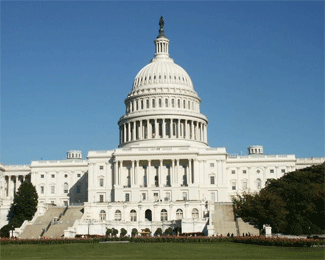






Online Gaming Opponent OK With Poker Carve-OutSen. Marco Rubio Breaks From Pack, Says Poker Is Skill |
|
|
 One of the co-sponsors of a bill seeking to ban online gaming nationwide is running for president, and he is actually open to the idea of a carve-out for peer-to-peer poker play.
One of the co-sponsors of a bill seeking to ban online gaming nationwide is running for president, and he is actually open to the idea of a carve-out for peer-to-peer poker play.
According to a report from the Las Vegas Review-Journal, Florida Senator Marco Rubio, a Republican presidential candidate, said that poker is distinct from other casino games because of the skill component. It’s a big concession.
“On the issue of Internet poker, the only difference between the poker games and the others is that it involves an element of skill associated with and compared with just a slot machine online,” Rubio reportedly said in an interview. “So that’s the one area that distinguishes it a little bit.”
Rubio hasn’t formally pushed for a poker carve-out, according to the report. An even more crucial carve-out, if the legislation is not to be consistently drawing dead, would need to be given to state lotteries. More than 10 U.S. states offer some form of online lottery services, creating a considerable opponent to efforts to prevent real-money online gaming. The U.S. lottery is a $70 billion-a-year market, and some state lotteries have expressed Interest in online casino games.
 Efforts to “restore” the Wire Act of 1961 to prohibit online casino games are backed by billionaire casino boss Sheldon Adelson, who thinks the games will actually hurt the brick-and-mortar casino industry. The bill that Rubio is a co-sponsor on is from South Carolina Senator Lindsey Graham, who is also running for president. Rep. Jason Chaffetz (R-UT) introduced his own version of a nationwide online gaming ban in February, before Graham’s bill came forward. Adelson is a mega-donor to the Republican party.
Efforts to “restore” the Wire Act of 1961 to prohibit online casino games are backed by billionaire casino boss Sheldon Adelson, who thinks the games will actually hurt the brick-and-mortar casino industry. The bill that Rubio is a co-sponsor on is from South Carolina Senator Lindsey Graham, who is also running for president. Rep. Jason Chaffetz (R-UT) introduced his own version of a nationwide online gaming ban in February, before Graham’s bill came forward. Adelson is a mega-donor to the Republican party.
Fortunately for online poker supporters, the Chaffetz bill hasn’t made any progress this year. A hearing on his bill was held in March. The Graham bill hasn’t had a hearing.
Both pieces of legislation are big long shots of ever becoming law, thanks to hardship that any proposal faces in Congress these days, especially one as complicated as federal Internet gaming regulation or prohibition. Three states—Nevada, New Jersey and Delaware—already have regulated online gaming industries, while California, Pennsylvania and New York are seriously considering regulation. Those states would fight vigorously against an online gaming ban gaining momentum on Capitol Hill, especially one that didn’t contain a clause to grandfather existing markets in.
Earlier this month it was reported by The Hill that since stand-alone legislation to ban online gaming is so unlikely a more threatening route at this point is a two-year moratorium on online gaming expansion. The ban could be put in place by mandating a federal study of the online gaming industry.
